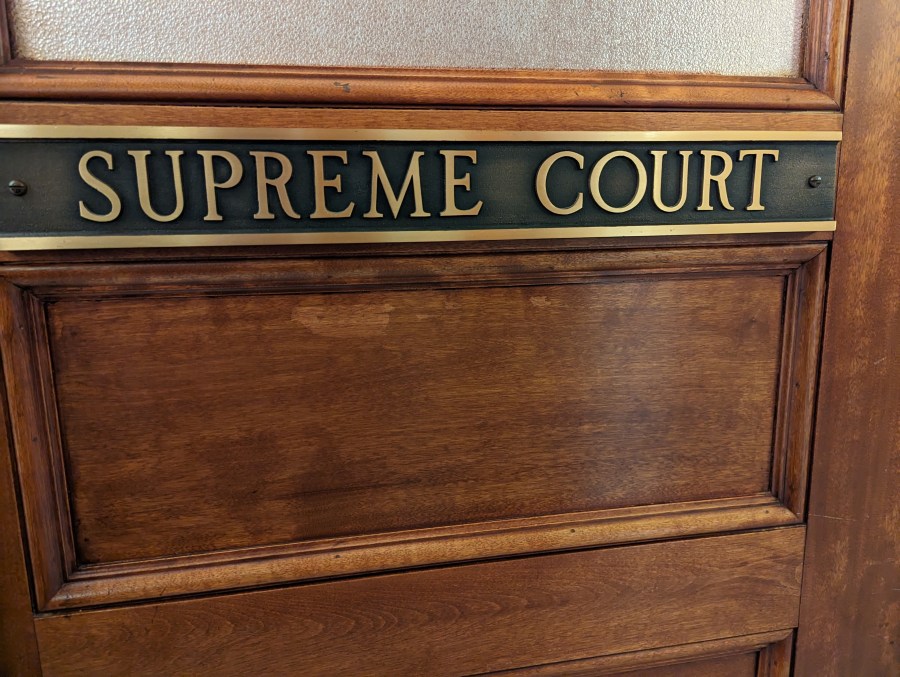PIERRE, S.D. (KELO) — A tribal court’s decision to grant a divorce to one of the tribe’s members isn’t enforceable, because the husband wasn’t a tribal member as the tribe’s legal code requires for dissolving a marriage, according to the South Dakota Supreme Court.
In a complex opinion publicly released Thursday, the Supreme Court said a state circuit judge erred in dismissing the husband’s request to have the matter decided in state court instead.
The wife, Terri Torgerson, is an enrolled member of the Sisseton-Wahpeton Oyate. She sought a divorce in SWO tribal court from Leslie Torgerson, a non-Indian.
The couple married in Vermillion and had made their home in Sisseton. Leslie Torgerson adopted Terri’s son. The couple had no biological children of their own.
After Terri Torgerson sought divorce in tribal court, Leslie Torgerson filed for divorce in state court. He asked state Circuit Judge Jon Flemmer to dismiss the tribal proceeding for lack of jurisdiction and improper service of process.
Terri Torgerson in turn asked Judge Flemmer to dismiss the state proceedings, which the state judge did. Leslie Torgerson then appealed the dismissal to the South Dakota Supreme Court.
After reviewing the matter, the Supreme Court found that the state judge’s dismissal was an error. Justice Janine Kern wrote the Supreme Court’s opinion.
South Dakota law allows state courts to recognize actions of tribal courts under specific conditions. One of those conditions is that the tribal court have jurisdiction over both the subject matter and the parties. Justice Kern stated that the state judge failed to conduct the analysis and that the state judge erroneously recognized the tribal court’s authority to proceed.
Further, Justice Kern found that the SWO tribal code regarding dissolution of marriages required either a death or that both parties be enrolled as members of an Indian tribe.
“Thus, SWO’s subject matter jurisdiction over divorces appears to be limited to marriages between ‘members of the Sisseton-Wahpeton Sioux Tribe or any Indian Tribe,’ thus excluding marriages involving a non-Indian. Because SWO lacks subject matter jurisdiction, the tribal
court order is not enforceable under SDCL 1-1-25,” Justice Kern wrote.
Justice Kern also found that Terri Torgerson failed to show that the SWO court had personal jurisdiction over Leslie Torgerson.
The Supreme Court’s opinion concluded with a special statement written by Justice Kern regarding the relationship between state courts and tribal courts.
“In rendering this opinion, we note that our decision does not, nor could it, determine or seek to limit the tribal court’s inherent judicial authority, nor do we sit as an appellate tribal court,” the statement said. “We accord the utmost respect to the nine sovereign tribal courts operating within this State’s territorial boundaries. However, our decision must apply the standards our Legislature requires us to follow and controlling federal precedent in determining whether a tribal court’s judicial acts are entitled to recognition by the courts of this State.”
Chief Justice Steven Jensen concurred with Justice Kern’s opinion.
Justice Mark Salter concurred on the state judge’s failure to follow state law, but Justice Salter noted in a dissenting viewpoint that he was writing “specially to suggest that our cases may not adequately account for the United States Supreme Court’s decisions involving the assertion of tribal jurisdiction over non Indians.” Justice Patricia DeVaney joined in Justice Salter’s dissent.
Justice Scott Myren wrote a separate dissent. Justice Myren agreed with Justice Kern that the state judge made an incorrect ruling against Leslie Torgerson. But Justice Myren said the case should be returned to state court, so that Judge Flemmer could conduct the review required by state law.


